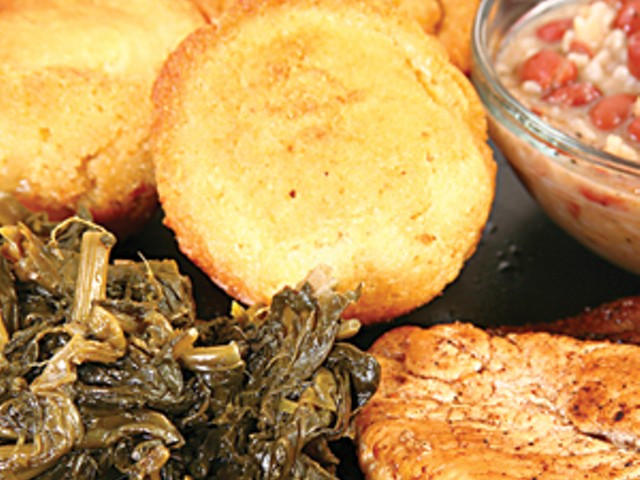White Dog
Criterion
Kristy McNichol's Julie Sawyer accidentally nails a dog with her car on a lonely California highway. The beautiful white German shepherd lives and she falls for him, and, of course, he for her. The little guy becomes her companion and protector — once going after an intruder with vigor. But when the dog goes after her black co-worker with the same verve, Julie discovers that there might be something wrong with her canine comrade.
Rather than put the poor pooch down, Julie seeks the aid of a pair of animal trainers Carruthers (Burl Ives) and Keys (Paul Winfield). They quickly diagnose the pooch's problem: She's got a "white dog" — an animal trained to attack African-Americans. "Can't nobody unlearn a dog," admonishes Carruthers. Yet, Julie won't give up on it. Moreover, Keys makes it his mission to retrain the animal, to undo the hurt and hatred that twisted its mind. "If I don't break him, I'll shoot him."
Based on a novel by Romain Gary, Paramount studios didn't know how to market White Dog. It was supposed to be "Jaws on paws," but rather than exploitation, the studio ended up with a meditation on racism. Despite good box office in Europe, Paramount yanked the film stateside after a lackluster screening in Seattle back in '82, hence White Dog becoming director Sam Fuller's Hollywood swan song. Bootlegs of a rare HBO airing was the only way to see White Dog, until now. —Mike White
Waterworld
Universal
This soggy saga stands among a select few films whose troubled productions and bloated budgets still haunt Hollywood. Jokingly referred to as "Fishtar," the film is more accurately derided as Kevin's Gate, in reference to director Kevin Reynolds and star Kevin Costner. At the heart of the film's failure lay the confluence of egos; Reynolds had just tanked with Rapa Nui while Costner was riding high on a string of hits. Determined to make another epic hit, a la Dances with Wolves, Costner reteamed with his partner on Fandango and Robin Hood: Prince of Thieves partner to make the post-apocalyptic eco-actioner, Waterworld.
Costner stars as the Mariner, an antihero who's unwelcome among the few remaining scattered bands of humans due to his mutant gills. He's saddled with Helen (Jeanne Tripplehorn) and Enola (Tina Majorino), as kind of a sailing Father Goose. This impromptu nuclear family is on the run from Deacon (Dennis Hopper) and his band of "Smokers" — a ragtag bunch who represent the basest elements of '90s American society. They're all in a race to find the legend of "dry land" in a wet world where a handful of dirt is worth a fortune.
With a ballooned budget of an estimated $175 million (?!), remarkably little of this exorbitant expenditure is evidenced on screen. The majority takes place on the Mariner's vessel, a modified catamaran. There are a handful of sets, a few action set pieces, and no lavish costumes of which to speak. Those few times where the Mariner squares off against Deacon and his thugs, it resembles little more than restaged Road Warrior scenes with jet skis in place of cars.
Along with the overinflated cost, the original running time of Waterworld clocked in at close to three hours. The version released to theaters ran 136-minutes while various television incarnations boasted upward of an extra half hour of padding, including a key shot at film's end that gives it a bit of a Planet of the Apes twist. Though only a few fans have asked for an extended edition of Waterworld, Universal has recently released a two-disc, which includes a 173-minute cut that fleshes out the flawed film.
Director Kevin Reynolds managed to bounce back, helming the highly-entertaining The Count of Monte Cristo in 2002 while Costner would make one more distended disaster with The Postman before being relegated to B-grade fare where he so belongs. And the movie itself? Waterworld is what it always was; a fairly enjoyable Road Warrior knockoff. —Mike White
Sukiyaki Western Django
First Look
The line between Japanese samurai films and Italian Westerns (that'd be "spaghetti" in the West and "macaroni" in the East) has been blurry from the days of Akira Kurosawa and Sergio Leone. The widescreen expanses of 19th century lawlessness was a cinematic language easily translated between chambara and Euro oaters.
Prolific filmmaker Takashi Miike forgoes the pasta and dubs his dabbling in horse opera a "sukiyaki" Western. This Japanese stew-like metaphor is appropriate because Miike tosses a great number of influences and references into his dish. What cooks up is "Django" (and he introduces Django's signature coffin hiding a machine gun midway through the film), but it owes more to Kurosawa than Corbucci in its acknowledged inspiration from Yojimbo. The black-clad antihero rides into a previously thriving town to find it a wretched hive of scum and villainy that's occupied by a handful of citizens and two warring clans, the Genji and Heike.
Clad in red and white, Miike's characters inject heavy rosy overtones, referencing War of the Roses, Henry VI, and a hybrid rose bush called "love" quite frequently. At least two of the film's characters are products of Genji (red) and Heike (white) love affairs.
Even with a wealth of past ideas to pilfer, Sukiyaki Western Django can't sustain itself for its full two-hour running time. To inject some life, Miike breaks into the cartoon sound-effects library and attempts to make Sukiyaki Western Django a life-action anime film. These instances are completely unbefitting, even after the highly stylized pre-credit sequence starring Quentin Tarantino as a living cartoon.
It's strange with actors speaking English as a second language (for the most part) and who muddle through some tricky pronunciations (thank goodness for English subtitles!) that the worst performance of the film comes courtesy of a native English speaker: Quentin Tarantino appears to be doing some kind of Western drawl crossed with a fluctuating German as if channeling a drunken Klaus Kinski. Tarantino's embarrassment may be brief but each second is excruciating.
Sure to be a hit with hipsters who've never seen an Asian in a cowboy hat (allow me to recommend Tears of the Black Tiger and New Morning of Billy the Kid instead), Sukiyaki Western Django could do with some tightening up and a complete Tarantino-echtomy. —Mike White





